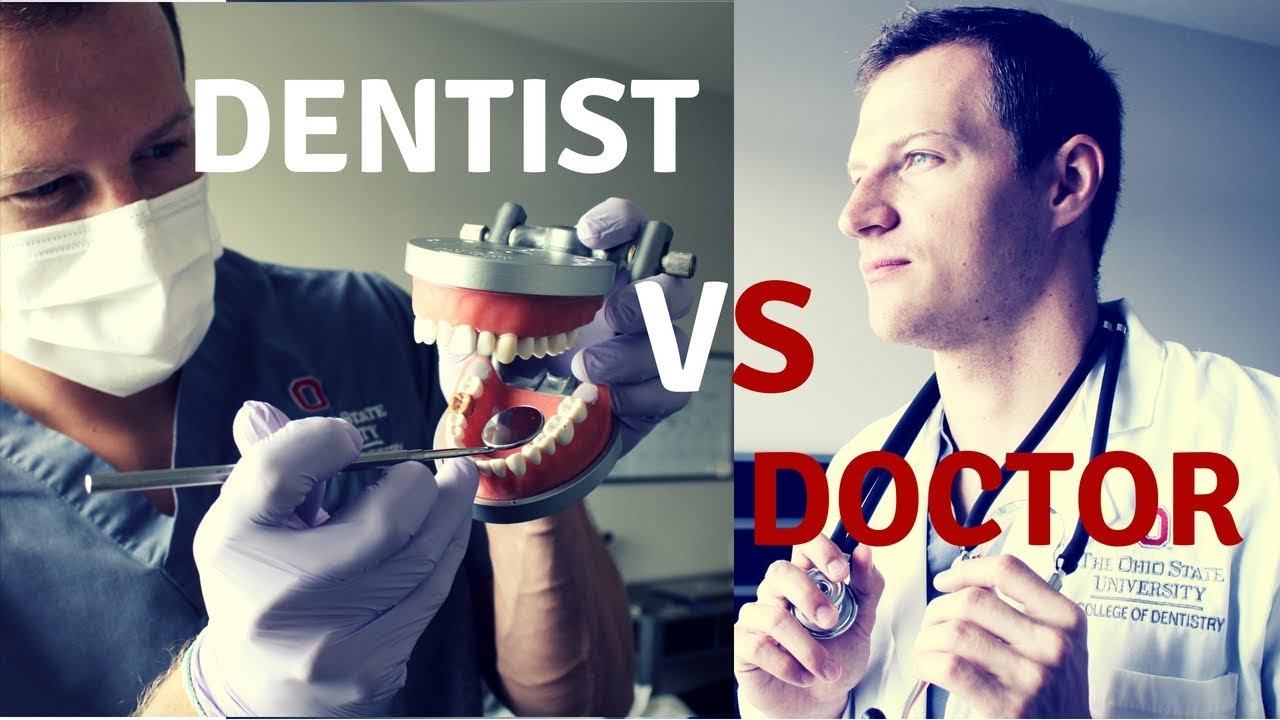Dentist Vs Medicine

The age-old debate between pursuing a career in dentistry versus medicine has been a longstanding conundrum for many aspiring healthcare professionals. While both fields are highly respected and rewarding, they require distinct skill sets, offer different work environments, and provide unique opportunities for specialization. In this article, we will delve into the intricacies of both professions, exploring the educational requirements, career paths, and personal fulfillment that each has to offer.
Educational Requirements: A Comparative Analysis
To become a dentist, one must complete a minimum of eight years of education and training after high school. This typically includes four years of undergraduate studies, followed by four years of dental school. Dental students learn about oral health, dental anatomy, and surgical procedures, among other topics. In contrast, becoming a medical doctor requires a minimum of 11 years of education and training, including four years of undergraduate studies, four years of medical school, and three to seven years of residency training. Medical students study a broader range of topics, including human anatomy, physiology, pharmacology, and pathology.
| Degree | Duration | Description |
|---|---|---|
| Doctor of Dental Surgery (DDS) | 4 years | Focuses on oral health, dental anatomy, and surgical procedures |
| Doctor of Medicine (M.D.) or Doctor of Osteopathic Medicine (D.O.) | 4 years | Covers human anatomy, physiology, pharmacology, and pathology |

Career Paths and Specializations
Dentists and medical doctors have various career paths and specialization options. Dentists can work in private practice, academia, research, or public health, and may specialize in areas like orthodontics, pediatric dentistry, or oral surgery. Medical doctors, on the other hand, can pursue careers in primary care, specialty medicine, surgery, or research, and may specialize in fields like cardiology, oncology, or neurology.
According to the Bureau of Labor Statistics, employment of dentists is projected to grow 6% from 2020 to 2030, while employment of physicians and surgeons is projected to grow 7% during the same period.
Work Environment and Lifestyle
The work environment and lifestyle of dentists and medical doctors differ significantly. Dentists typically work in private practices or clinics, with regular hours and a more predictable schedule. They may also have more control over their workload and patient interactions. Medical doctors, by contrast, often work in hospitals, clinics, or research institutions, with irregular hours, high-stress situations, and a heavier workload. However, medical doctors may have more opportunities for advancement and leadership roles.
Personal Fulfillment and Rewards
Both dentistry and medicine offer a sense of personal fulfillment and rewards. Dentists can derive satisfaction from improving patients’ oral health and aesthetic appearance, while medical doctors can find fulfillment in diagnosing and treating complex medical conditions, and making a positive impact on patients’ lives.
Steps to Becoming a Dentist or Medical Doctor
- Earn a bachelor's degree from an accredited undergraduate institution
- Take the Dental Acceptance Test (DAT) or Medical College Admission Test (MCAT)
- Attend dental or medical school
- Complete residency training (for medical doctors)
- Obtain licensure and certification
Myth vs. Reality: Debunking Common Misconceptions
There are several misconceptions about dentistry and medicine that need to be addressed. One common myth is that dentists only perform routine cleanings and fillings, while medical doctors are the only ones who can treat complex medical conditions. However, dentists can perform a wide range of procedures, from oral surgery to orthodontics, and medical doctors may also perform routine check-ups and preventive care.
Pros and Cons of Dentistry and Medicine
| Profession | Pros | Cons |
|---|---|---|
| Dentistry | Predictable schedule, more control over workload, opportunities for specialization | Limited scope of practice, high educational debt |
| Medicine | Opportunities for advancement, variety of specialties, sense of making a difference | High-stress environment, long hours, heavy workload |
Future Trends and Implications
The healthcare landscape is constantly evolving, with advances in technology, changes in patient demographics, and shifts in healthcare policies. Both dentistry and medicine must adapt to these changes, incorporating new technologies, such as artificial intelligence and telemedicine, and addressing the needs of diverse patient populations.
What are the most in-demand specialties in dentistry and medicine?
+According to the Bureau of Labor Statistics, the most in-demand specialties in dentistry include orthodontics, pediatric dentistry, and oral surgery. In medicine, the most in-demand specialties include primary care, cardiology, and oncology.
How do I choose between a career in dentistry and medicine?
+Consider your interests, skills, and values, as well as the educational requirements, career paths, and work environment of each profession. Shadowing or volunteering in dental and medical settings can also provide valuable insights and help you make an informed decision.
In conclusion, while both dentistry and medicine offer rewarding careers with opportunities for specialization and personal fulfillment, they require distinct skill sets, educational requirements, and work environments. By understanding the nuances of each profession, aspiring healthcare professionals can make informed decisions about their career paths and contribute to the advancement of healthcare in meaningful ways.



